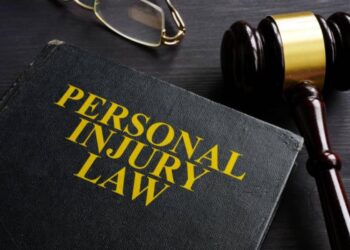Slip and fall accidents can cause serious injuries, ranging from broken bones to traumatic brain injuries. If you’ve been injured in a slip and fall accident due to someone else’s negligence in Texas, you may be entitled to compensation for your medical bills, lost wages, and other damages. Filing a lawsuit can feel overwhelming, especially if you’re dealing with injuries and recovery. This guide will walk you through the essential steps to file a slip and fall lawsuit in Texas.
Navigating the legal system after a slip and fall accident can be complicated and time-consuming. Working with an experienced slip and fall attorney in Austin can ensure that your case is handled properly and that you receive the compensation you deserve. From investigating the accident to negotiating with insurance companies, an attorney can provide essential support and representation throughout the legal process.
Why Slip and Fall Accidents Happen
Slip and fall accidents can occur for a variety of reasons, but most often, they are the result of hazardous conditions on someone else’s property. Understanding the common causes can help you identify whether negligence played a role in your accident. Some of the most frequent reasons slip and fall accidents happen include:
- Wet or slippery floors: Spills, leaks, or recently cleaned floors can create a slippery surface if not properly marked with warning signs.
- Uneven surfaces: Cracked or uneven sidewalks, broken pavement, or poorly maintained floors can cause a person to trip and fall.
- Poor lighting: Dim or inadequate lighting in hallways, staircases, and parking lots can make it difficult to see hazards, increasing the risk of a fall.
- Obstructions: Items left in walkways, like boxes, cords, or other debris, can cause someone to trip.
- Unsafe stairs: Broken handrails, uneven steps, or slippery stair treads are common hazards that can lead to a fall.
- Weather conditions: Rain, snow, or ice can make outdoor surfaces treacherous, and property owners have a duty to clear or mark these hazards when they occur.
Property owners have a legal responsibility to maintain safe conditions and warn of potential hazards. When they fail to do so, accidents happen, and victims may be entitled to compensation for their injuries.
Seek Medical Attention
The first step after any accident, especially a slip and fall, is to seek immediate medical attention. Not only is this crucial for your health, but medical records will serve as evidence of your injuries when you file your lawsuit. Some injuries, like concussions or soft tissue damage, may not show symptoms immediately, so it’s essential to get checked out as soon as possible.
Gather Evidence
To win a slip and fall lawsuit in Texas, you must prove that the property owner’s negligence caused your accident. Gathering evidence is essential for building a strong case. Here are key pieces of evidence to collect:
- Photographs or videos of the accident scene, focusing on the hazard that caused your fall (e.g., wet floor, uneven surface).
- Medical records showing the extent of your injuries.
- Witness statements from anyone who saw the accident.
- Incident reports filed with the business or property owner.
Make sure to keep all relevant documents and communications in one place.
Determine Liability
In a Texas slip and fall lawsuit, you must show that the property owner or manager was negligent in maintaining safe conditions. To prove liability, you’ll need to demonstrate one of the following:
- The property owner or manager knew about the dangerous condition and failed to fix it.
- The property owner or manager should have known about the hazard because a reasonable person in their position would have discovered it.
- The property owner or manager caused the hazardous condition.
Texas operates under a “modified comparative fault” rule, meaning that if you are partially responsible for the accident, your compensation may be reduced in proportion to your level of fault. If you are found to be more than 50% at fault, you cannot recover damages.
Consult with a Personal Injury Attorney
Filing a slip and fall lawsuit involves complex legal procedures, and working with an experienced personal injury attorney can make the process smoother. A lawyer will help you navigate Texas law, gather additional evidence, negotiate with insurance companies, and represent your interests in court if necessary. Most personal injury attorneys in Texas work on a contingency fee basis, meaning you won’t have to pay unless you win your case.
File Your Claim Within the Statute of Limitations
In Texas, the statute of limitations for filing a personal injury lawsuit, including slip and fall claims, is generally two years from the date of the accident. If you miss this deadline, you may lose your right to pursue compensation. It’s crucial to act quickly and consult an attorney as soon as possible to ensure all paperwork is filed on time.
Negotiate a Settlement or Go to Trial
Many slip and fall cases in Texas are settled out of court. Your attorney will negotiate with the property owner’s insurance company to try to reach a fair settlement. If a reasonable settlement cannot be reached, your case may go to trial, where a judge or jury will determine the outcome.










